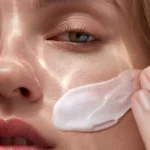
Building the ultimate skincare routine isn’t as simple as picking up a cleanser and moisturizer. It requires careful thought, understanding your skin type, and choosing products that work for you. Whether you’re looking to reduce wrinkles, fight acne, or protect your skin from harmful UV rays, having a personalized skincare routine is key to achieving glowing, healthy skin. This guide will walk you through the essential steps to create your ideal skincare regimen, incorporating dermatologist-recommended practices and the latest trends in skincare science.
Step 1: Identify Your Skin Type
The first step in creating a skincare routine is understanding your skin type. Are you dealing with dry, oily, combination, or sensitive skin? Different skin types require different products and routines.
-
Sensitive Skin: Dermatologists suggest that individuals with sensitive skin should focus on products that are fragrance-free, hypoallergenic, and gentle (American Academy of Dermatology, AAD).
-
Oily or Acne-Prone Skin: If you’re prone to breakouts, opt for a cleanser with salicylic acid or benzoyl peroxide, both of which are proven to reduce acne (AAD).
Step 2: Choose the Right Cleanser
A good skincare routine always starts with cleansing. Choose a gentle yet effective cleanser suited to your skin type. For example, if you have oily skin, look for cleansers with ingredients like salicylic acid, which can help reduce excess oil production.
Ingredients to Look For:
- Ceramides: Help retain moisture and create a healthy skin barrier.
- Vegetable glycerin: A great choice for exfoliation.
- Aloe Vera (Aloe Barbadensis) leaf juice: moisturizing
- Tocopherol: Sunflower Derived Antioxidant
Step 3: Apply a Toner
Using a toner after cleansing can help balance your skin’s pH levels. Look for a toner that contains hydrating ingredients like hyaluronic acid for added moisture and witch hazel for calming inflammation. Toners with glycolic acid can also help exfoliate and prevent clogged pores.
Step 4: Moisturizing for Hydration
Hydration is key to a healthy skincare routine, no matter your skin type. Even if you have oily skin, using a lightweight, oil-free moisturizer is crucial for maintaining balance. Hyaluronic acid is a popular ingredient in moisturizers, as it draws moisture into the skin, giving it a plump, hydrated look.
Dermatologist Tip: A moisturizer with SPF is recommended for daily use to help protect against UV damage (AAD).
Step 5: Protect Your Skin with SPF
Whether it’s sunny or cloudy, SPF is a must in your skincare routine. Dermatologists suggest applying a broad-spectrum sunscreen with at least SPF 30 daily. UVA and UVB protection is crucial for preventing premature aging and skin cancer.
Studies show that daily use of sunscreen reduces the risk of melanoma and other skin cancers (Journal of the American Academy of Dermatology).
Step 6: Add Treatment for Specific Concerns
If you have specific concerns like acne, dark spots, or fine lines, it’s important to incorporate treatments. Here are some dermatologist-recommended ingredients for targeted treatments:
-
Anti-aging: Look for retinol or vitamin C serums that can help reduce wrinkles and fine lines.
-
Acne treatment: Salicylic acid or benzoyl peroxide are commonly used for acne control and have shown proven results in clinical trials (AAD).
-
Hyperpigmentation: Niacinamide is an effective ingredient for brightening and fading dark spots.
Step 7: Clean Beauty Products
In recent years, there’s been a rise in clean beauty, focusing on products made with non-toxic ingredients. While clean beauty can be a great choice for those concerned about harmful chemicals, it’s important to ensure that these products are backed by science for effectiveness.
Conclusion
Building the ultimate skincare routine requires more than just purchasing products off the shelf. Understanding your skin type, choosing effective ingredients, and incorporating treatments tailored to your needs will ensure your skin stays healthy, radiant, and protected. By following these steps, you’ll have a skincare routine backed by research and dermatological expertise that delivers real results.
Remember to keep your skin hydrated, protect it from the sun, and focus on ingredients that work for you. Over time, your skin will thank you for it.


